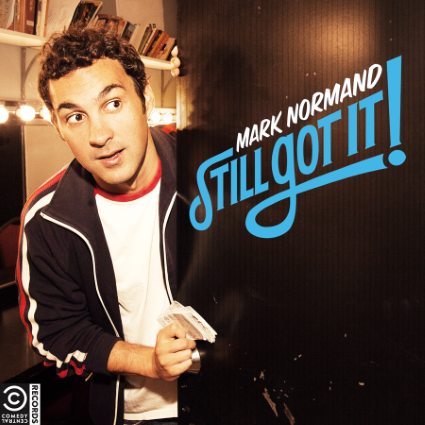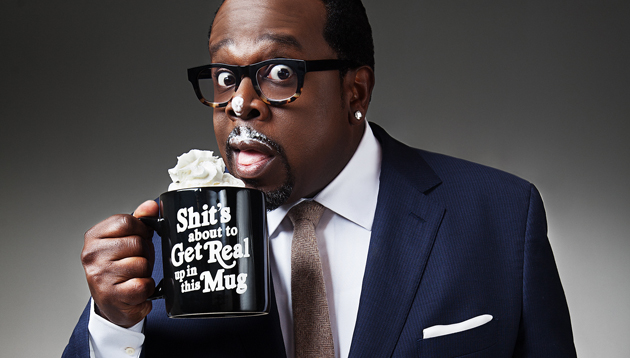Will Ferrell is a really nice guy. Looked me in the eyes during our introduction a couple of weeks ago at the Ritz, delivered a solid handshake. Enough to unnerve a lesser civilian. But after a playfully simple opening question, we were off and running in a discussion to promote Talladega Nights.
So, is there a real-life RB that the fictional Ricky Bobby and Ron Burgandy are both based on?
"Maybe we have to think of another RB if we’re going to continue these movies," Ferrell said. "No. It just happened. You’re giving us way too much credit. We’re not that smart."
Any similarity, though, in how you developed both characters?
On Anchorman, he said, "I was watching this documentary on this guy — former newscaster who worked with Jessica Savitch. And I heard him kinda talk, and that kinda set me off. Plus, just listening to all newscasters talk. Truth is with Ricky Bobby, it definitely wasn’t…I didn’t watch interviews with race-car drivers, but we knew we wanted him to be kind of Southern. I didn’t have any sort of blueprint for him. Other than, as we started writing, within our writing, we usually, Adam (McKay) and I improvise our scenes…we actually sit there and play the characters and say, ‘Oh, wait. What’d we say? Write that down!’ In that case, Anchorman, I kind of had him more in my head so I could drive the writing through what the character would say. This was more of the opposite."
Was there someone or some class that helped mold you into such a strong character-driven comic?
"We did crazy characters with the Groundlings. So I think in a way that was probably the most influential place in terms of just allowing your mind to just kind of go free. We would have exercises, where they’d throw crazy things at you — You are the King of Cheese. Write a monologue. Five minutes. So you would have to just, it didn’t matter if it was good or funny or not. But it just, what it did. It allowed you to shed that, what would he say, you just had to dive into things…and so, probably that’s helped me the most."
You’re also really strong at staying in character. Why is that?
“I used to do that in my personal life. When I was in college, one of the more fun things we would do, is I had a group of friends we would take a road trip to Vegas, and instead of doing the typical, ‘let’s gamble!’ and ‘let’s try to pick up ladies!’, we were kind of geeks in that we liked sitting at a blackjack table and leaving a couple of chairs open and allowing people to sit in between us but pretending that we didn’t know each other. I’d be a businessman from Chicago. And my other friend would be…We’d in a sense be playing characters and trying to interact with the people in between us. That fostered a certain level of commitment and being able to stay in stuff. It was so much fun and kind of exhilirating to not be outed.”
“Chris Kattan and I were at the Groundlings together. One of our fellow castmates who was in one of the shows we were doing…everyone obviously had other jobs. He ran a small PR firm. And they were in charge of supplying, it was in Pasadena, they were in charge of supplying or hiring a Santa and his elf for this outdoor kinda old-town, this mall. We needed the money, so I was Santa and he was my elf for four consecutive weekends. It was really hard but kinda fun to just stay in character. We would just wander in and out of stores, it wasn’t a typical sit-on-sleigh and people come and take pictures, we wandered around…it was a fun thing to try to stay in that for that long…The best part was Chris was really into doing his little elf character and then I could see that by the second day, he didn’t care anymore because no one cared about the elf. They’d go ‘Santa!’ And he’d say, ‘Here kid, have some candy.’”
Ever think of switching so he could be Santa and you’d be the elf? "No. that never came up. Yeah, we shoulda switched. We should of switched it up…”
Sacha Baron Cohen is in the movie with you, and he’s also such a dominating character comic. How did that impact or influence your performance?
“In a way, a lot of times, when Sacha’s character is in the scene, Ricky is almost the straight man. So I kinda had to adjust that way. Because he’s so outlandish in a way. So I always had to pull it back. But it was kinda fun, too. We welcomed that. In these two movies, we obviously liked doing more ensemble stuff with multiple hopefully funny characters. Those are the films that resonated with us. The Animal Houses, and the Stripes, the Caddyshacks of the world, where you had a lot of funny characters throughout the film. Why did that go away? Why can’t that still be? So Sacha just stepped in and hit the ground running with us, even though it was probably harder for him, because the stuff that he’s in, he’s in control of…so he probably had to give in to us in a way. Which we were thankful for. He had to relinquish some of the control that he was used to having…that’s what happens when you’re a hired gun. We try to a decent job of sharing the wealth with all of the characters.”
What about your comedic influences?
“I, definitely, the people that you know, probably the single biggest factor influence for me was watching Saturday Night Live, and the two guys that I gravitated to the most were Dan Aykroyd and later Phil Hartman, because I loved their versatility, in that they could be the funniest person in a scene, but they could also just be support. And be the ballast. The straight man in the scenes and still be funny when they were doing that. And I always thought, oh, that’s like the coolest job in the cast in a way, because you’re assured of being in a lot (of scenes). And yet, they were no less funny than any other cast member.”


